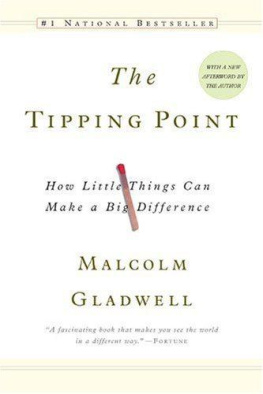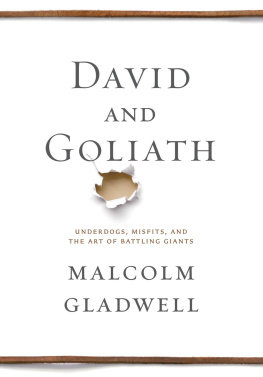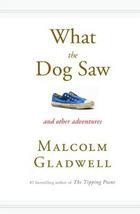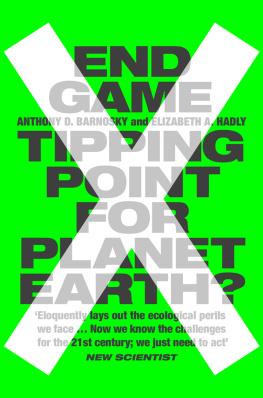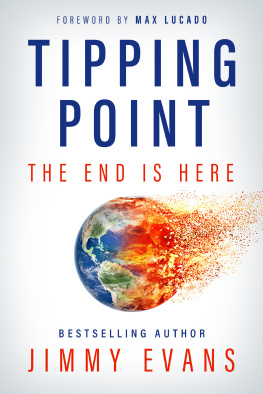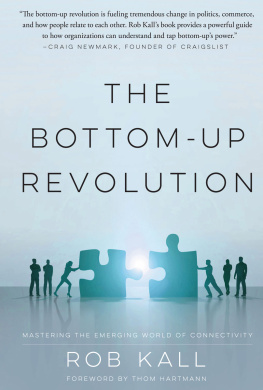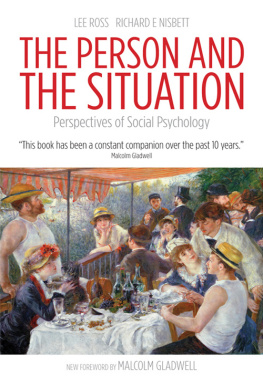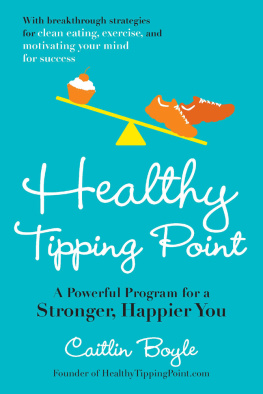Copyright 2000, 2002 by Malcolm Gladwell
All rights reserved.
Little, Brown and Company
Hachette Book Group
237 Park Avenue
New York, NY 10017
Visit our website at www.HachetteBookGroup.com .
The Little, Brown and Company name and logo are trademarks of Hachette Book Group, Inc.
First eBook Edition: January 2002
The author is grateful for permission to include the following previously copyrighted material: Excerpts from interviews on Market Mavens videotape by Linda Price, Lawrence F. Feick, and Audrey Guskey. Reprinted by permission of the authors; Exerpts from Daniel Wegner, Transactive Memory: A Contemporary Analysis of the Group Mind, Journal of Personality and Social Psychology (1991), vol. 61, no. 6. Reprinted by permission of the author; Excerpts from Donald H. Rubinstein, Love and Suffering: Adolescent Socialization and Suicide in Micronesia, Contemporary Pacific (Spring 1995), vol. 7, no. 1, and Epidemic Suicide Among Micronesian Adolescents, Social Science and Medicine (1983), vol. 17. Reprinted by permission of the author; Excerpts from Paul Reveres Ride by David Hackett Fisher. Copyright 1994 by Oxford University Press. Reprinted by permission of the publisher.
ISBN: 978-0-7595-7473-1
Contents
Acclaim for Malcolm Gladwells
The Tipping Point
How Little Things Can Make a Big Difference
An elegant exploration of how social epidemics work, whether they are fashion trends, diseases, or behavior patterns such as crime.... One of the most interesting aspects of Gladwells book is the way it reaffirms that human beings are profoundly social beings influenced by and influencing other human beings, no matter how much technology we introduce into our lives.
Deirdre Donahue, USA Today
Undeniably compelling... terrifically rewarding.
Claire Dederer, Seattle Times
A wonderful page-turner about a wonderfully offbeat study of that little-understood phenomenon, the social epidemic.
Daily Telegraph
One of the years most anticipated nonfiction titles.... The Tipping Point is propelled by its authors voracious but always amiable curiosity.... Gladwell has a knack for rendering complex theories in clear, elegant prose, and he makes a charismatic tour guide.
Christopher Hawthorne, San Francisco Chronicle
As a business how-to, The Tipping Point is truly superior, brimming with new theories on the science of manipulation. Aaron Gell, Time Out The Tipping Point is one of those rare books that change the way you think about, well, everything. The book sets out to explain nothing less than why human beings behave the way they do, and, astonishingly, Malcolm Gladwell has the smarts and panache to pull it off.
Jeffrey Toobin, author of A Vast Conspiracy
With passion and eloquence, Gladwell argues for the proposition that minor alterations, carefully conceived and adeptly enacted, can produce major consequences for individuals, organizations, and communities.
Barry Glassner, Los Angeles Times Book Review
Gladwell is intelligent, articulate, well-informed, and thought-provoking.... The Tipping Point is full of interesting stuff.
Observer (UK)
Its hard not to be persuaded by Gladwells thesis. Not only does he assemble a fascinating mix of facts to support his theory from the impact of Paul Revere to a rash of suicides in Micronesia but he also manages to weave everything into a cohesive explanation of human behavior. Whats more, we appreciate the optimism of a theory that supports, as another pundit once called it, the power of one.
Diane Brady, Business Week
Having read this book I have thought deeply about my own business and can now see much more value in small-scale below-the-line activity. Worth a read for marketers and students of human nature alike.
Phil Riley, Marketing (UK)
Its the flight of Gladwells thought that captures your imagination.
Jon Garelick, Boston Phoenix
Startling and convincing.... Gladwell may be about to start an intellectual epidemic that could shake up the way we think about everything from selling shoes to planning cities. And how cool is that?... Nimbly juggling a remarkable assemblage of anecdotes and facts, he presents a convincing case that, contrary to the prevailing wisdom of mass trends and focus-group marketing, a few individuals or a single haphazard event can set off a social epidemic that profoundly alters the culture.
Liz Seymour, Attache
Fascinating.... While The Tipping Point is largely a popularization of earlier scientific work in epidemiology, psychology, sociology, and group dynamics, it is valuable because it synthesizes this knowledge, bringing insights gleaned from these disparate fields together and applying them to an impressive array of contemporary social behaviors and cultural trends. Such knowledge, properly applied, could have enormous potential.
Paula Geyh, Chicago Tribune
Well-written and lively.... The Tipping Point is a smart attempt to show us why epidemics are useful metaphors for shaping our thinking about social life.
Marcellus Andrews, Emerge
Anyone interested in fads should read The Tipping Point.... An ambitious, well-written book on how seemingly small ideas can change the world. Carmela Ciuraru, Us A great read.... Gladwell holds our attention with anecdotes about tipping point personalities as well as little-knowntidbits.... TheTippingPoint isthought-provoking.
Blake Elizabeth Newmark, Jerusalem Post
An intriguing book.... Gladwell has succeeded in gathering an array of fascinating related material and presenting it with an ease that makes it accessible and unforgettable.
Bill Duryea, St. Petersburg Times
In a fascinating look at research from the disparate fields of anthropology and business, Gladwell makes a convincing case that there is actually a magic number 150 beyond which human groupings become dysfunctional.
Gary Kenton, News & Record (Greensboro, NC)
As informative and thought-provoking a book as I have read in some time.... Gladwells arguments and examples are persuasive. The chapter on childrens TV programs is riveting.
Robert Worcester, Management Today (UK)
In a compelling blend of scientific and cultural analysis, Gladwell argues that trends in fashion, art, and politics spread just as germs do.... The most notable thing about Gladwells style, both in his writing and in person, is the excitement with which he approaches his subjects.
Casey Greenfield, Newsday
Fascinating enough for the general reader, Gladwells work is a particular boon for businesspeople looking for inspiration on how to tip their own ideas into popular crazes.
Publishers Weekly
What someone once said about the great Edmund Wilson is as true of Malcolm Gladwell: he gives ideas the quality of action. Here hes written a wonderful page turner about a fascinating idea that should affect the way every thinking person looks at the world.
Michael Lewis, author of Liars Poker
and The New New Thing
Genuinely fascinating and frequently startling.... Its the kind of book from which youll be regaling your friends with intriguing snippets for weeks to come, in addition to being, potentially, a powerful, practical tool for anyone with an idea to peddle or a campaign to promote.
Scotland on Sunday (UK)
The Tipping Point assembles talking points from childhood development, marketing, and social epidemiology, and holds them up at an angle that lets one distant notion attach to another.... An ingenious guide.
Richard Lacayo, Time
The thrust of Gladwells book is that seemingly small gestures can have fantastically large and rapid outcomes.... The Tipping Point could well prove to be an influential text for political activists.
Timothy Noah, Washington Monthly
Hip and hopeful, The Tipping Point is like the idea it describes: concise, elegant, but packed with social power. A book for anyone who cares about how society works and how we can make it better.
Next page
